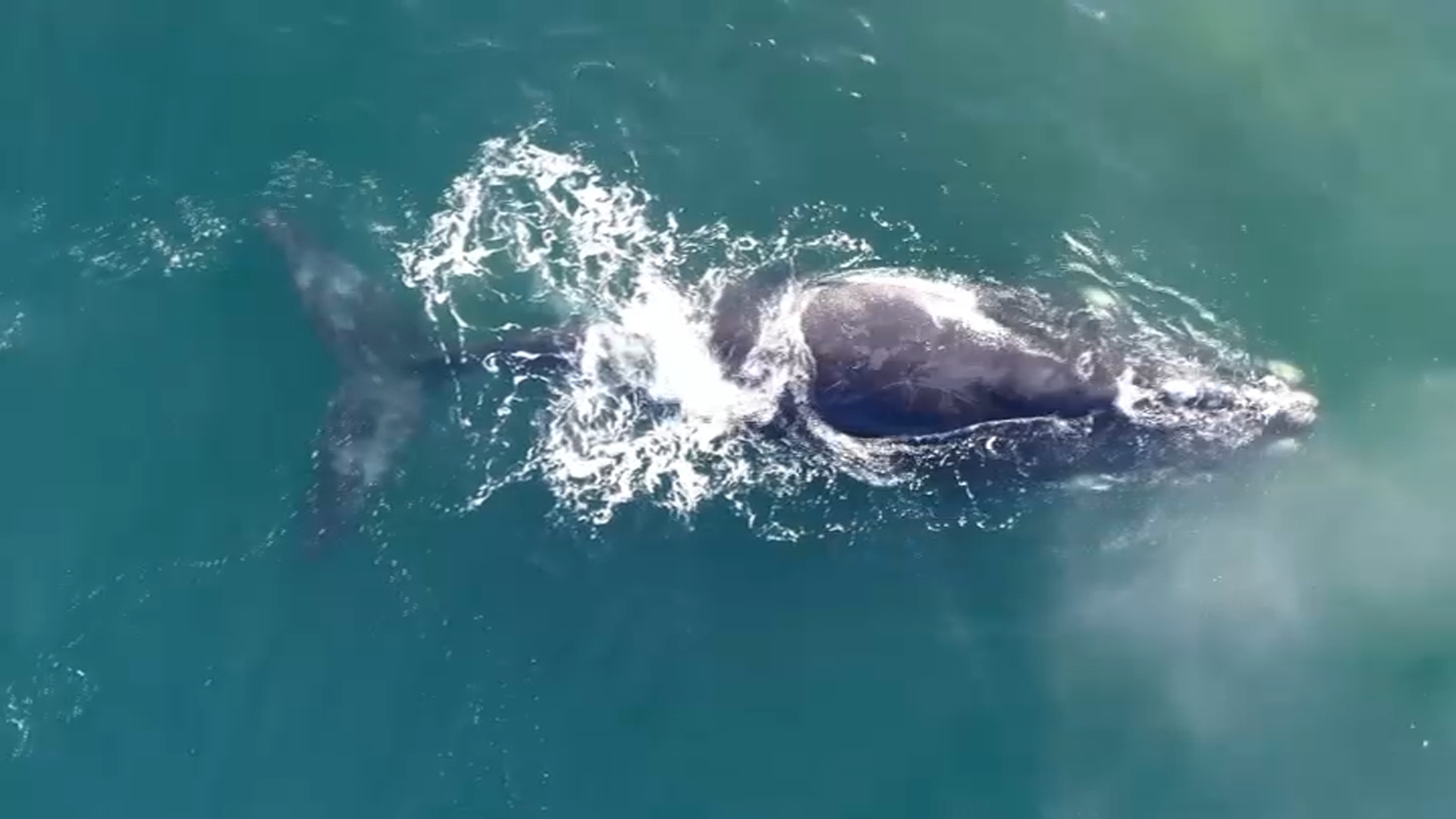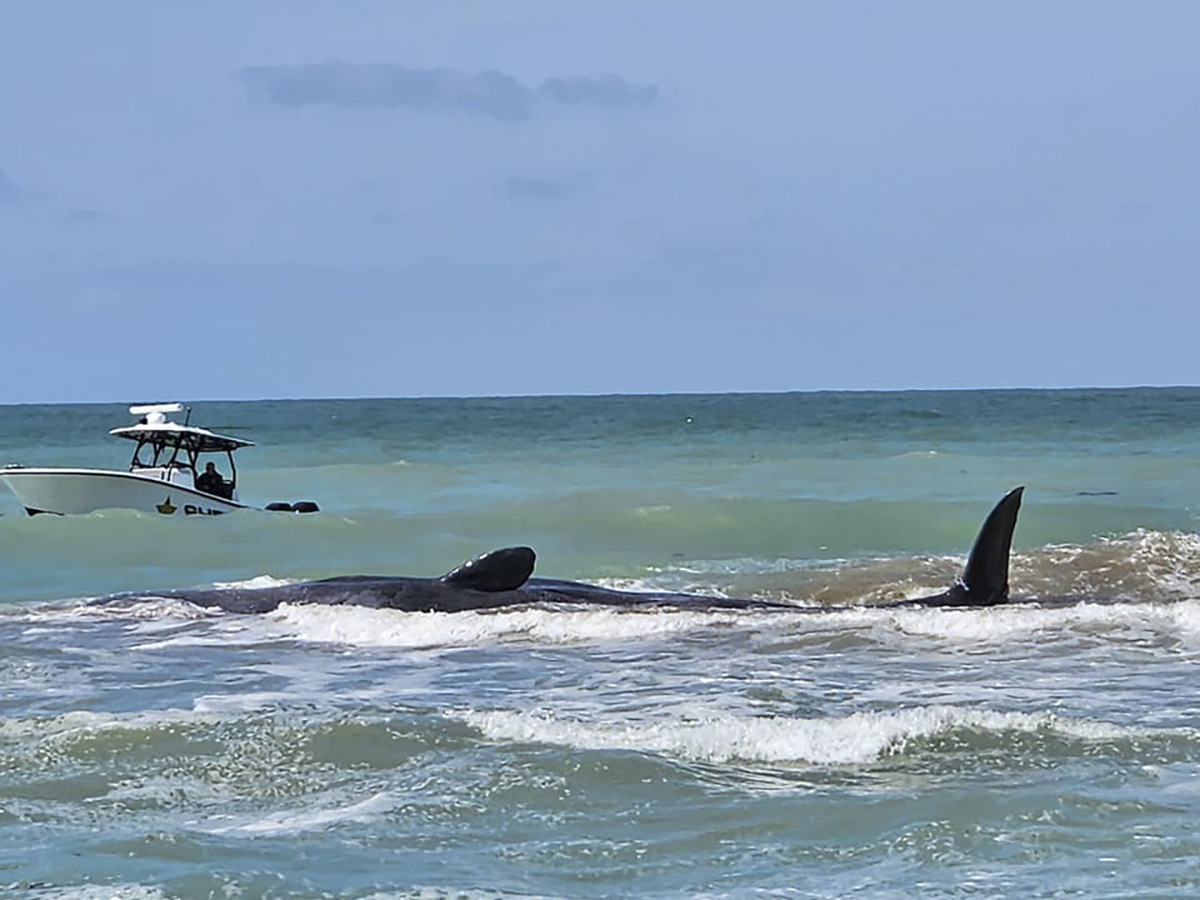Up to 160 long-finned pilot whales beached on the western Australian coast Thursday and at least 26 died before wildlife authorities could begin a rescue attempt, officials said.
A team of wildlife officers, marine scientists and veterinarians had reached the scene at Toby’s Inlet near the tourist town of Dunsborough, the Department of Biodiversity, Conservation and Attractions said in a statement.
The stranded whales were from four pods spread across 500 meters (1,640 feet) of shore, the department said.
An additional 20 whales were in a pod about 1.5 kilometer (almost a mile) offshore and 110 whales formed a pod closer to the beach, it said.
“Our team is making every effort to safely respond and keep volunteers and staff safe, while also acting in the best interests of the whales,” the statement said.
“Our team is assessing the conditions of the whales that have stranded on the beach. Our teams on the water are trying to keep the animals together and away from the beach,” the statement added.
Almost 100 long-finned pilot whales died or were euthanized after a two-day rescue attempt last July in a mass stranding on Cheynes Beach near the former whaling station of Albany, 355 kilometers (220 miles) southeast of Dunsborough.
Dunsborough is 285 kilometers (177 miles) by road south of Perth, Western Australia state's capital and largest city.
Based on previous strandings including the Cheynes Beach event last year, euthanizing the beached whales is usually the most humane outcome, the department said.
“We always hope for the best outcome,” the statement said.
Regional wildlife officer Pia Courtis said the whales were believed to have become stranded early Thursday.
She said the pod of 110 whales was “sticking together offshore” and was likely to come toward the beach.
“Unfortunately the outcome for our pilot whales once they strand on the beach is generally not good. We have high numbers of animals that end up dying,” Courtis said in a video statement.
Officials had earlier urged the public not to try to rescue the whales on their own.
“We know people want to help, but we asked that people please do not attempt to rescue the animals without direction of DBCA staff as this may cause further injury, and distress to the animals and hinder a coordinated rescue effort,” the Parks and Wildlife Service of Western Australia said in a statement.



